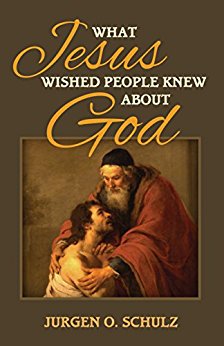
Without the Trinity, holiness has the smell of mothballs about it, the look of a Victorian matron administering castor oil. And much of what purports to be holiness has just that aura about it: all prickliness and prudery. People even say things like ‘Yes, God is loving, but he is also holy’ – as if holiness is an unloving thing, the cold side of God that stops God from being too loving.
Balderdash! Or at least, it is if you are talking about the holiness of the Father, Son and Spirit. No, said Jonathan Edwards,
“Holiness is a most beautiful, lovely thing. Men are apt to drink in strange notions of holiness from their childhood, as if it were a melancholy, morose, sour, and unpleasant thing; but there is nothing in it but what is sweet and ravishingly lovely.”
Holiness and beauty
What is holiness, then? The words used for holiness in the Bible have the basic meaning of being ‘set apart’. . . For the reality about me is that I am cold, selfish, vicious, full of darkness and dirtiness. And God is holy – ‘set apart’ from me – precisely in that he is not like that; there are no such ugly traits in him. ‘God is God,’ wrote Edwards, ‘and distinguished from [that is, set apart from] all other beings, and exalted above them, chiefly by his divine beauty’ (for the connection between holiness and beauty, see Psalm 96:9).
Holiness is about love
Now the holiness of a single-person, non trinitarian God would be something quite different. His holiness would be about being set apart away from others. In other words, his holiness would be all about aloof distance. But the holiness of the Father, Son and Spirit is all about love. Given who this God is, it must be. Edwards again:
“Both the holiness and happiness of the Godhead consists in this love. As we have already proved, all creature holiness consists essentially and summarily in love to God and love to other creatures; so does the holiness of God consist in his love, especially in the perfect and intimate union and love there is between the Father and the Son.”
The holiness of the triune God is the perfection, beauty and absolute purity of the love there is between the Father and the Son.
There is nothing grubby or abusive about the love of this God – and thus he is holy. My love is naturally all perverse and misdirected; but his love is set apart from mine in perfection. And so, the holiness of the triune God does not moderate or cool his love; his holiness is the lucidity and spotlessness of his overflowing love.

For the believer to be holy, to be godly – means to be like God. If God is a being curved in on himself, then to be like him I should be like that. If Aristotle’s eternally introspective God is God, then plenty of navel-gazing seems to be just what’s called for. If love and relationship were not central to God’s being, then they wouldn’t feature for me either. Forget others. If God is all single and solitary, be a hermit. If God is cruel and haughty, be cruel and haughty. If God is the sort of oversexed, beer-sloshing war-god of the Vikings, be like that. (Though please don’t.)
But with this God, the two greatest commands are ‘Love the Lord your God’ and ‘Love your neighbour as yourself’. For that is being like this God – sharing the love the Father and the Son have for each other, and then, like them, overflowing with that love to the world. In Leviticus 19, the Lord famously says ‘Be holy because I, the LORD your God, am holy’ (v. 2). What does holiness look like there? It means not turning to idols but coming to the Lord with proper fellowship offerings (vv. 4-8). That is, it means fellowship with the Lord. And it means not being mean to the poor, not lying, not stealing etc. (vv. 10-16) – that is, it means ‘Do not hate your brother in your heart … but love your neighbour as yourself’ (vv. 17-18).
Love for the Lord, love for neighbor –
that is the heart of holiness and
how the triune God’s people
get to be like him.

The beautiful, loving holiness of this God makes true godliness a warm, attractive, delightful thing. Holiness for God, said Edwards, ‘is the beauty and sweetness of the divine nature’, and so ‘Christians that shine by reflecting the light of the Sun of Righteousness, do shine with the same sort of brightness, the same mild, sweet and pleasant beams.’ To know and enjoy the God who is love essentially means learning to love as He does.
–Adapted from Mike Reeves












































